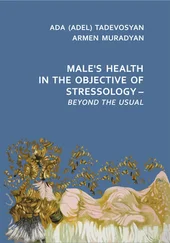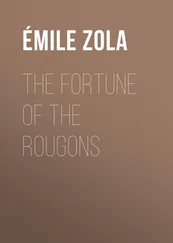Sleepy, the dog allowed his bearlike fur and his big muzzle to be stroked. Next to his half-torn right ear, he had a scar that reached his neck. “You’re like a man who’s suffering,” Nora told him, and pulled him towards her armchair, close to the fireplace.
With Faffner next to her, she felt protected without knowing against what. She would have liked to stay in the armchair for hours on end…
The evening meal lasted a long time. Only the two of them ate, served by Hagen, in silence that was interrupted only by the tinkling of the plates and a few of the dog’s growls from in front of the fireplace.
“If you go to bed,” Hagen told them, “there’s no need to put out the small lamp on the bookshelf. It usually stays on all night.”
They heard him closing the shutters on the windows and the doors.
Is it that late? Nora wondered. Do we really have to go to bed?
A discomfort came over her. She remembered that even Paul was a stranger, or at most a friend. Their night of lovemaking, their only night of lovemaking, had been a coincidence, a misunderstanding, a forgotten event to which she did not wish to return. Since their departure she had been united with him, with the best possible goodwill, by a sporting pact, a pact between buddies, and she was determined to keep it that way. Last night they had slept side by side like two soldiers after a long march, felled by exhaustion. But now she was afraid of the coming night, which would find her awake, with her eyes open.
For the first time it struck her as wrong that they hadn’t stayed in the dormitory room at the Touring Club. There, at least, things would be clear, without danger, without temptation…
“It’s late, Nora,” Paul said, coming towards her. “Shall we go to bed?”
He posed the question with simplicity, without anxiety, without impatience. There was something assured in his manner, something conciliatory.
She didn’t know how to reply. She wasn’t hesitating, but neither could she find the word or gesture to match the situation.
“Let’s take things as they come,” he went on. “Let’s leave them to their own rhythm, all right?”
He enclosed her in his arms and kissed her slowly on the eyes, on the cheeks. His kisses were not passionate, but they were deep, warm kisses.
TWO DAYS LATER, NORA LOOKED FOR the red-haired Saxon from the SKV chalet at the Touring Club. She was determined to talk to him and ask him about the “Grodeck mystery.”
But the man was nowhere to be found. There were dozens of skiers on the hill — many more even than the day before — and it would have been difficult to make out the man with the eyes of a badger among the crowd. She didn’t even know his name.
“When we’re going back for lunch, we should make a detour to the Saxons’ chalet. We might find him there.”
“Let’s do it!” Paul accepted.
“But you should realize that it’s not easy. To get there, we’ll have to go down a very fast slope, and the trail is full of people. You’ll run into somebody at every step. I’m only taking you with me if you work hard all morning.”
Paul greeted this fierceness with amenability. I’m going to learn, I’m going to learn , he murmured in his thoughts. He found huge, childish ambitions inside himself. He wished he could amaze Nora, disarm her, surpass her. His snowplow was going very well, especially at slow speeds. Yet at higher speeds it was impossible for him to lift his skis out of their path. He had a clenching sensation in his ankle. He looked with an odd, powerless fascination in the direction of his ski boots, he realized that he was locked into a descent that was accelerating at every second, and yet he was powerless to transmit to his skis the simple pressure that would have made them skid to the right or the left and reduce his speed.
“We have to learn the turns,” Nora said. “Let’s start with the simplest one: the snowplow turn. It’ll be good enough for our lunchtime route. This afternoon or tomorrow, we’ll try something harder.”
Paul found even this one exceedingly hard. The theoretical explanation was always simple (“Let your weight fall on one ski, loosen the other one and the turn happens automatically”), but when he had to apply the elementary things she taught him, he came up against unexpected, and for him, incomprehensible, obstacles. He worked all morning under Nora’s inspection, repeating incessantly the same turns to the right and the left. It was a rigorous, meticulous training, devoid of grace or glory. Where was his heroic enthusiasm of the day before? Where was his cry of freedom, his explosion of ecstacy?
Nora put an acerbic halt to his most timid expressions of delight. “That’s not it. Go back and do it again.”
She obliged him to start the same movements dozens of times. She gave her orders in a dry, curt, persistent voice. Like a fanatical army officer , Paul thought spitefully, though he had decided to accept all of her comments without rebelling.
“In position! That’s not it. Do it again.”
He gave her a furtive look. She was serious, attentive, severe. Nothing in her manner recalled the warm, sensual and slightly sad woman who had slept all night in his arms. There, on the ski hill, this vision even struck him as impossible. It was a troubling, dreamy, idle vision that he had to banish from his mind.
This girl in the blue jacket, with her confident movements and firm voice, was a wise person.
Paul stopped in the middle of an exercise he had started, approached Nora and clapped her on the shoulders in a boyish way.
“What’s going on?” she asked, surprised.
“Nothing. I just wanted to tell you that you’re a good comrade.”
Nora remained a little puzzled, since the unexpectedness of his gesture did not fit with the seriousness of her thoughts. At last she replied with simplicity: “I know.”
Paul fell countless times on the way to SKV chalet. Nothing that he had learned on the hill served him now. Things that he had succeeded in doing perfectly correctly up at the Touring Club now became impossible again.
Groups of skiers were coming down from the summit along the same narrow trail marked with yellow triangles. He heard shrieks behind him, far off in the distance, and because he couldn’t get out of their way in time, he threw himself into the snow at the edge of the trail, and let them pass. He reached the SKV chalet white from head to foot, exhausted by too many falls, yet delighted that he had completed the trail.
“Don’t say anything to me, Nora. I know, I know: I made thousands of mistakes. I promise you I won’t make them next time.”
The man with the eyes of a badger was in the yard in front of the chalet with an axe in his hand. He was splitting large oak logs for firewood.
“Aren’t you staying with Gunther any more?” he asked, catching sight of them.
“Of course,” Paul replied. “But we’ve come here to warm up. Why don’t you come inside with us and drink a glass of mulled wine?”
The three of them entered the chalet, the same chalet that had initially struck them as being so hostile. Even the man with the eyes of a badger was friendlier now.
“So how’s our painter doing?” he asked.
“What painter?”
“Gunther.”
“He’s a painter?”
The man burst out laughing. He had an odd laugh, which wrinkled his whole face but left his eyes expressionless, like two tiny balls of glass. “That’s what he says: that he’s a painter.” Then he became serious for a moment and said, shaking his head: “That lad is the disgrace of the Grodeck family.”
“Do you know the family?” Nora asked.
Читать дальше












